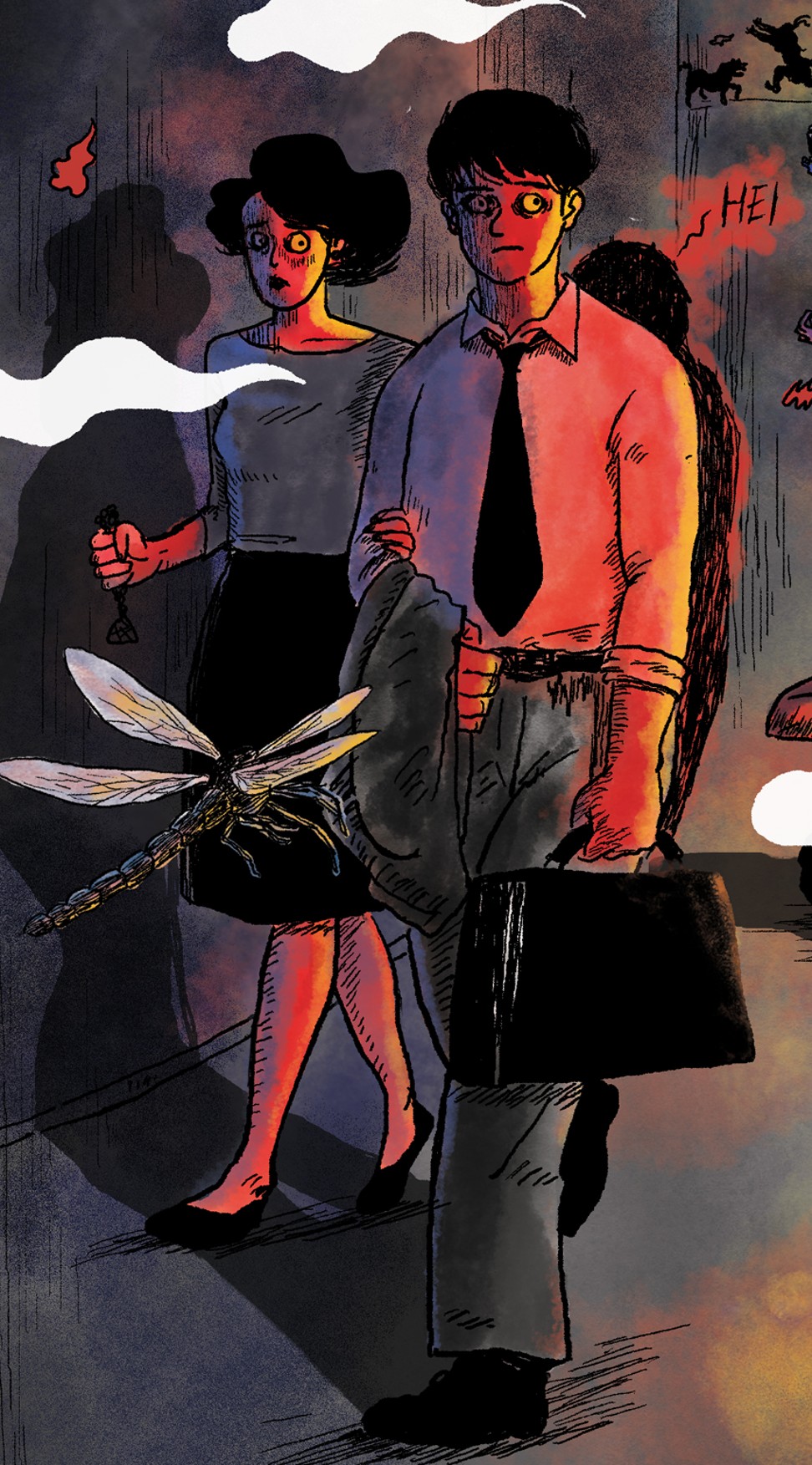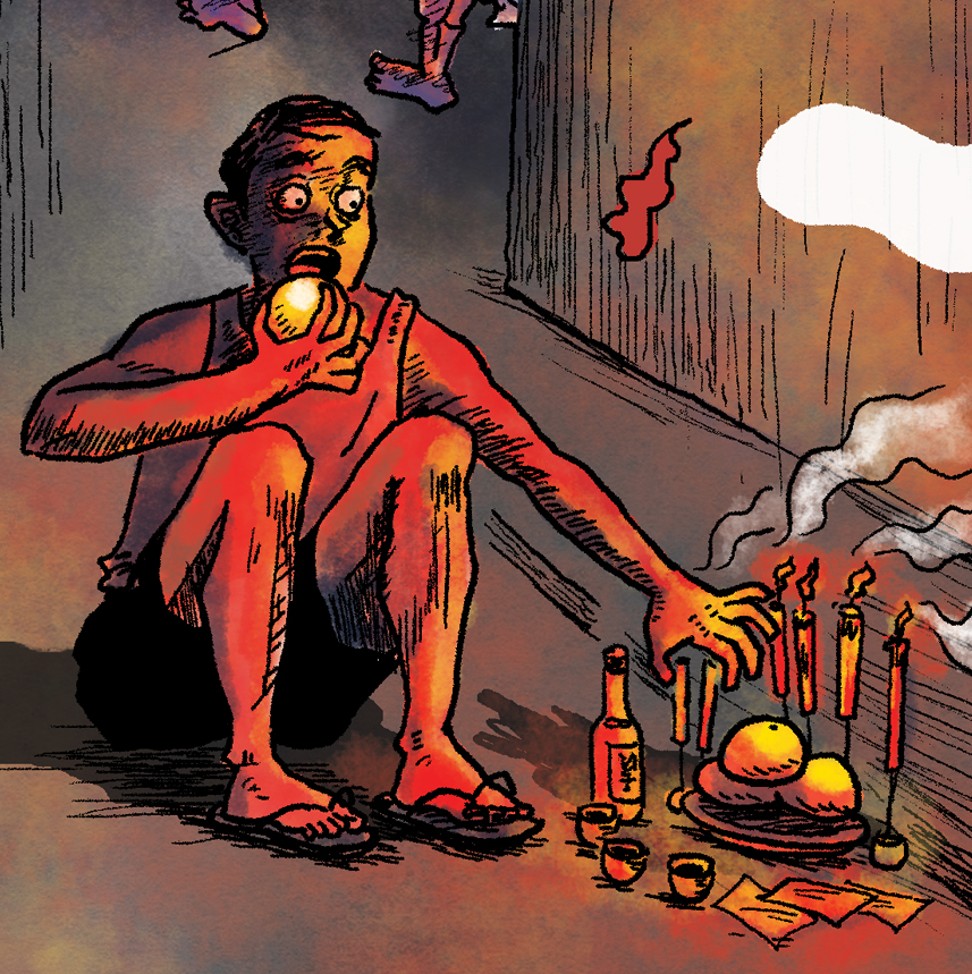
Why you should not take selfies and should always be kind to grasshoppers: Hong Kong’s Hungry Ghost Festival explained
Annual event, based on the seventh month of the lunar calendar, has origins tracing back 2,000 years to Buddhist and Taoist customs
As the gates of hell open and ghosts roam among the living – or so followers of a Chinese custom believe – Hong Kong welcomes the annual Hungry Ghost Festival with the familiar smell of burning incense and paper.
The Chinese believe the seventh month of the lunar calendar is when the living and spirit realms are linked. The 15th day of this month – which falls on Saturday this year – is known as the Hungry Ghost Festival where supernatural activity peaks. The day is also called Yu Lan, Ullambana or Zhongyuan.

The festival, with origins tracing back 2,000 years to Buddhist and Taoist customs, is observed by Chinese people all over Asia, including in Singapore, Taiwan and Malaysia.
Listed as part of China’s intangible cultural heritage, the Hungry Ghost Festival has been honoured for over 100 years.
How did it come about?
There are different religious fables surrounding the origin of the festival. In Buddhist scripture, the celebration of Yu Lan or Ullambana is derived from the tale of Mulian, a virtuous monk bent on rescuing his mother, who is languishing in the lowest level of hell as a hungry ghost.
Following Buddha’s instructions, Mulian offers her relief through food and gifts brought to monks and monasteries on the 15th day of the seventh lunar month.

In Taoist belief, Zhongyuan is the birthday of the deity known as Di Guan – or official of earth – who judges the good and evil deeds of man.
Also called Inspection Day, it is the time when Taoist believers are supposed to perform rites to help ghosts ascend to the celestial Eastern Palace where they can seek salvation.
What happens in Hong Kong?
Throughout the seventh lunar month, Chinese people in Hong Kong will burn incense, joss money, candles and paper offerings in tin cans on pavements. This act is believed to appease weary spirits exhausted from their trip to the world of the living.
The burning of paper replicas of everyday items is also thought to be a way to present gifts to the dead. Merchants in the city show great creativity every year as they cart out paper models of villas, yachts, sports cars and helicopters, among other luxury items family members may want to offer their deceased loved ones.
Real food, such as fruits, meat and pastries are also placed on street corners to feed wandering spirits and soothe the restless ghosts.

On the 15th day, worshippers gather at makeshift altars set up in villages and public housing estates, where more incense and paper offerings are burned amid displays of food and colourful decorations. Accompanying the rites are stages built on bamboo stilts where Cantonese opera is performed day and night.
Traditionally, the Hong Kong government and charities organise activities in public places to distribute bags of free rice to the elderly during this period, following a custom by the ancient Chinese authorities to comfort the poor.
These events have been diminishing in recent years because of security concerns.
The festival is highly treasured by the 1.2-million strong Chiu Chow community in particular in Hong Kong. Chiu Chow roots are traced back to mainland China’s Guangdong province.
The community in the city hold their own festive events throughout the seventh month.
Dos and Don’ts
Want to avoid the wrath – and appetite – of a hungry ghost? Here are some tips:
■ Do not go out after sunset. If you have to, try not to have others call you by name, as spirits may remember you.
■ Do not remove offerings prepared for ghosts – let alone eat or use them.
■ If you hear someone calling you from behind on the street at night, do not look back over your shoulder.
■ Do not take selfies at night as you risk strange things showing up in your photos.
■ Do not chase after dragonflies and katydids (a type of grasshopper), as they are believed to be reincarnations of some who have died.
■ Keep a lucky charm with you, such as Buddha beads, a protective talisman or a crystal.
■ Keep corridors and corners of your house bright at night by always turning on the lights.
■ Place simple incense and food offerings at the front door of your house to appease spirits.
■ Wear yellow clothes, as yellow is believed to be the colour of the light of gods.
■ Stay respectful when going to temples or passing by cemeteries.



